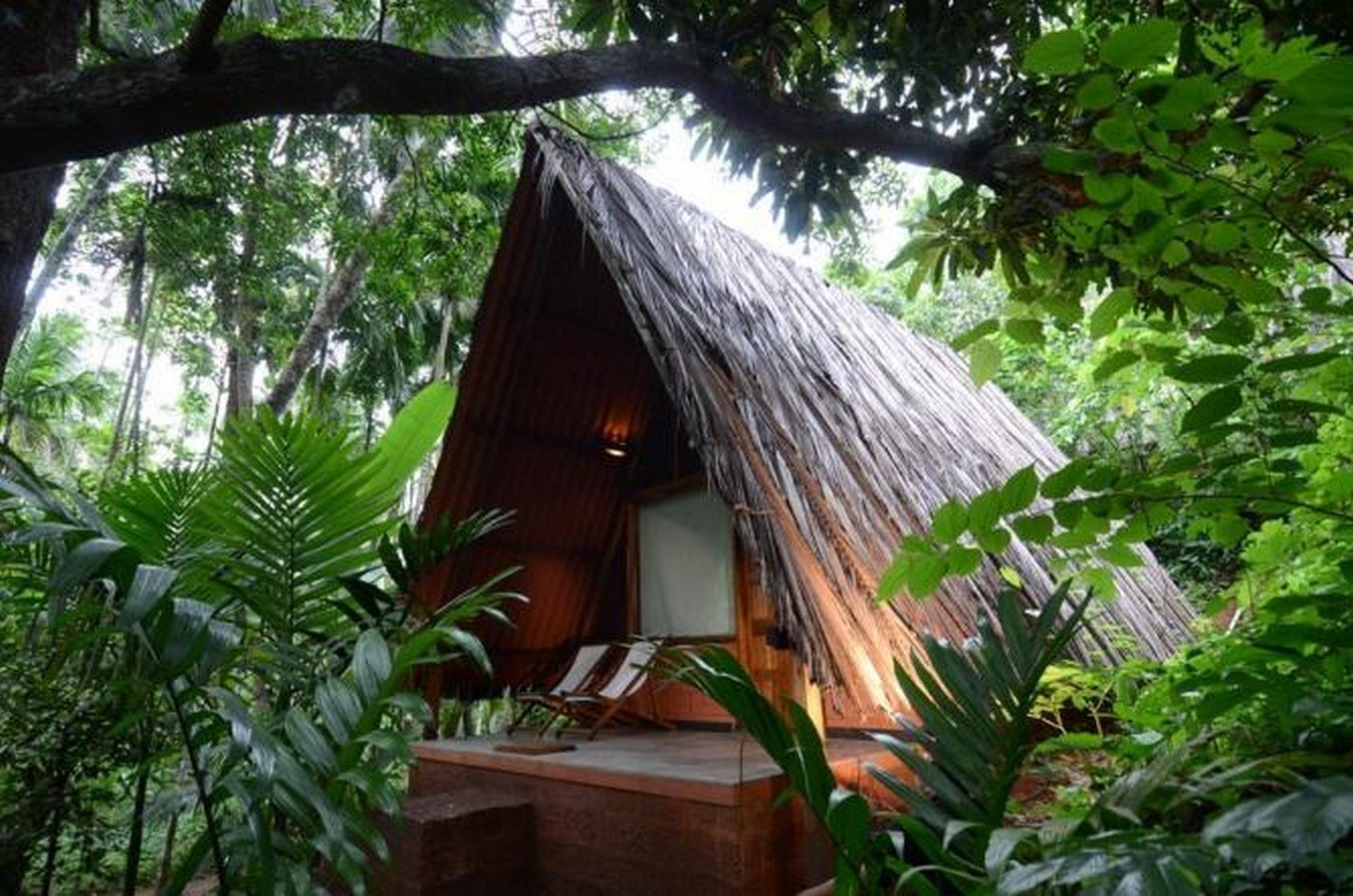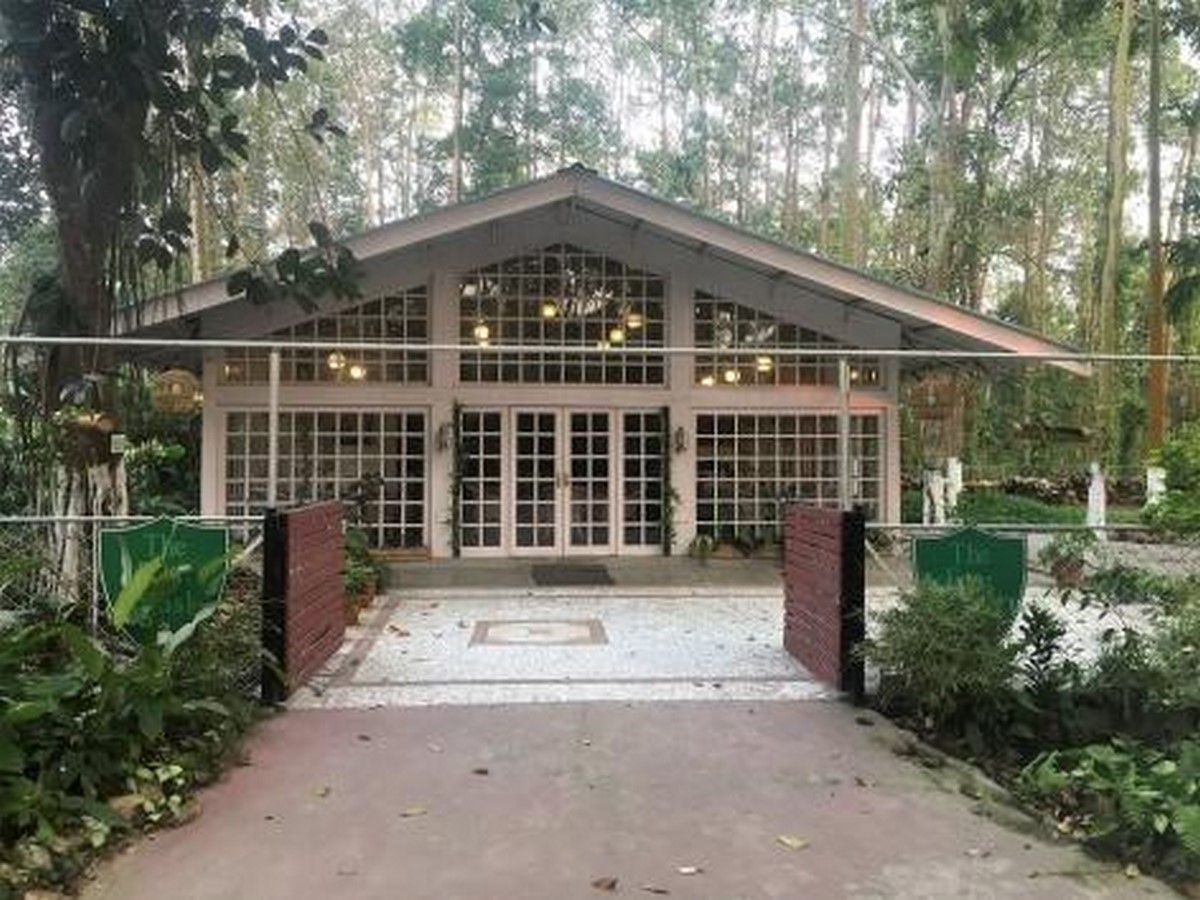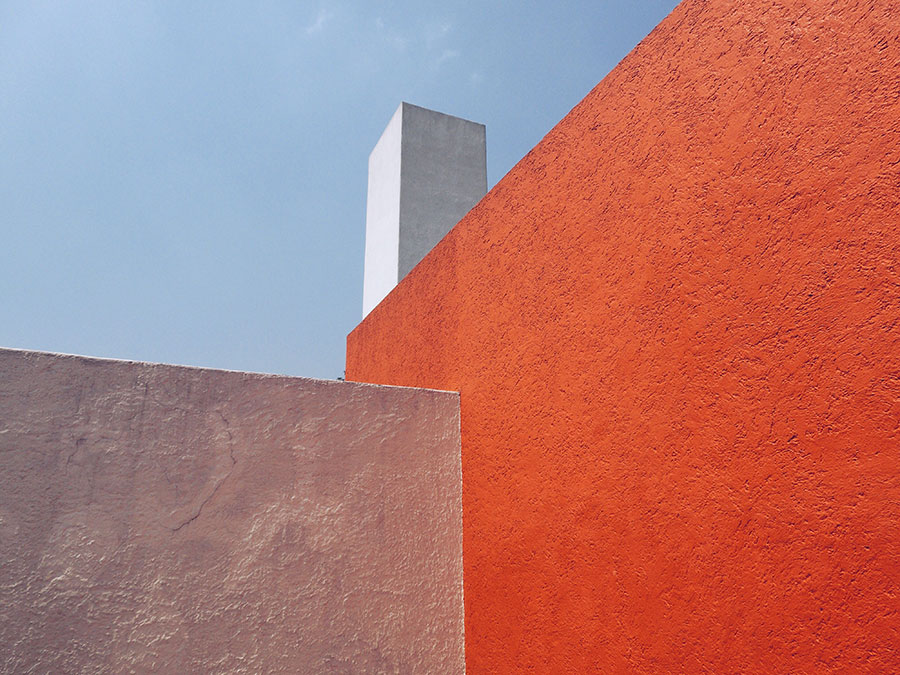“What we are doing to the forests of the world is but a mirror reflection of what we are doing to ourselves and one another.” – Mahatma Gandhi. The quote associates itself with the rampant deforestation and exhaustion of natural resources. The offset of such activities has gyrated the world into a complex whirlpool of sustainability and the ethos residing within.
Coming to the forests and sustainability, what is said the urban beehives resort to when they want a break from their ‘buzzy-ness’ and flock to the bustling meadows in the wild. To create a dialogue of ecosystem and co-livings, Eco lodges as a means of sustainable tourism were created in hilly areas.
Eco-Lodges- A Concept
With the tourism sector hitting an all-time rise, and the most sought-after locations being mountains, it is therefore imperative to come up with solutions. Monetary gains and in-cashing nature without directly harming it is one noble method of coexistence in the biosphere. The concept of Eco-Lodges is an attempt to counter the leading factors creating a disturbance in the ecosystem. A critical endeavour from the 1980’s, aimed at providing the future generation with an experience of destinations relatively untreaded by human interventions. It is an initiative to reduce carbon footprints and side by side bring people close to nature.
Local communities and their development facilitated by these ecology-oriented projects balance the inter-community and intra-community harmony by breaking barriers. The Eco-tourism Society (T.I.E.S) defines eco-lodges in three components: – conservation of neighbouring lands, benefits of local communities, and interpretation to both the local population and guests. With this, it emphasises imparting awareness for the tourists as well as local communities; as well as appreciation of nature and promotion of conservation ideologies. It is a tool to foster mutual respect within communities having diverse cultural ethos. Eco lodges come up with sustainability as a factor, economic benefit and political empowerment of residents. It also urges tourism with an impact on pro-environment collectiveness.
Promoting Eco-Lodges
To nurture the go-green ideology, various considerations meeting tourism design and conservation, Eco-lodges besides being the accommodative spaces also are proactive flora and fauna reserves. Lodges incorporate renewable resources as the energy-deriving parameters. The space is created as such, that it relates to nature with a low environmental impact.

Entertainment and Infotainment, educational trips, and health and wellness clubs are enjoyed amidst the pristine botanical areas. People also launch eco museums, creating an in-house community museum where, local communities and their produce, local activities and livelihood are on display without any artificial interruption. Nature walks, and botanical and zoological safaris create awareness. The interplay of architectural design in introducing wastewater treatments, curating living spaces, and materiality used, further pushes the idea of comfort with minimal impact. Certain certifications like the Earth Check, Green Key, and LEED (leadership in Energy, Environment Design) help to gain credibility for commitment to sustainable practice.
Mahseer Eco-Lodge: An Example
To delve into the things offered by Eco-lodges, let’s breed close and immersive thoughts of the architectural marvels and ecological landmarks these lodges are. In the easternmost state of Assam, we have the wild Mahseer eco-lodge, located in the Balipara region. It is part of the Balipara Foundation and aims at conserving the biodiversity of the area. Drawing the essence towards itself is the Bura bungalow of an aesthetic old-world charm. It is a 150-year-old residence which served as the residence of British tea planters. The architecture is a seamless blend of the vast landscape of lush greenery and tea plantations all around. Assam being home to vernacular housing structures using bamboo thatches and wood, influences the architectural features in the lodge as well. It is the reflection of traditional culture and the colonial era. They use energy-efficient systems of lighting, waste management systems and solar power sources.

The architecture is such to minimize the impact on the local existing eco-system. It offers a myriad of tea plantation estates such as the Balipara, Addabaraie estate, Behora estate, and Nonaipara estates. The eco-lodge offers thrilling adventures into the wild with hiking tours, visits to fisheries and river ferries for all. To have a glimpse of the traditional heritage, it offers to get adsorbed into the community gatherings and their local activities. These activities also make up the intangible culture that needs to be preserved. Guided tours create awareness around the tea-making process and hands-on experiences of the local culture infuse collectiveness amongst all. The most famous and influential trips are to the tea gardens and tea cultivation excursions. What makes it more endearing is that the tourists are served homegrown vegetables and regional cuisines. Delicacies are enjoyed which contemplates the rich and diverse regional legacy passed down.

In Conclusion
Eco-lodges are not the place where the journey ends at check-in. It is a roadway to responsible tourism and an initiative to protect the fragile ecosystem. Travellers get a chance to harmonize between the natural tapestry and webbed human connections. It is also a budding economic garden where people co-exist and bloom into self-sufficient individuals. Protection and safeguarding of human values, and ecological and cultural heritage; form the cradle of sustainability and build a cohesive existence on the planet. To meditate on a higher purpose in life, connecting with nature and innermost feelings come as a pre-requisite, Eco-Lodges offers us a platform for elevation.
References
- Erdem, B. and Tetik, N., 2013. An environmentally-sensitive approach in the hotel industry: Ecolodges. International Journal for Responsible Tourism, 2(2), pp.22-40.
- Wild mahseer lodge (no date) Teagardenteas. Available at: https://www.teagardenteas.com/wild-mahseer-lodge (Accessed: 21 October 2023).
- Worku, Z. and Mohammed, T., 2019. Eco-lodges and tourist infrastructure development in and around Abijata Shalla Lakes National Park; From the perspective of evaluating their sustainability. Journal of Tourism, Hospitality and Sports, 45, pp.12-20.














